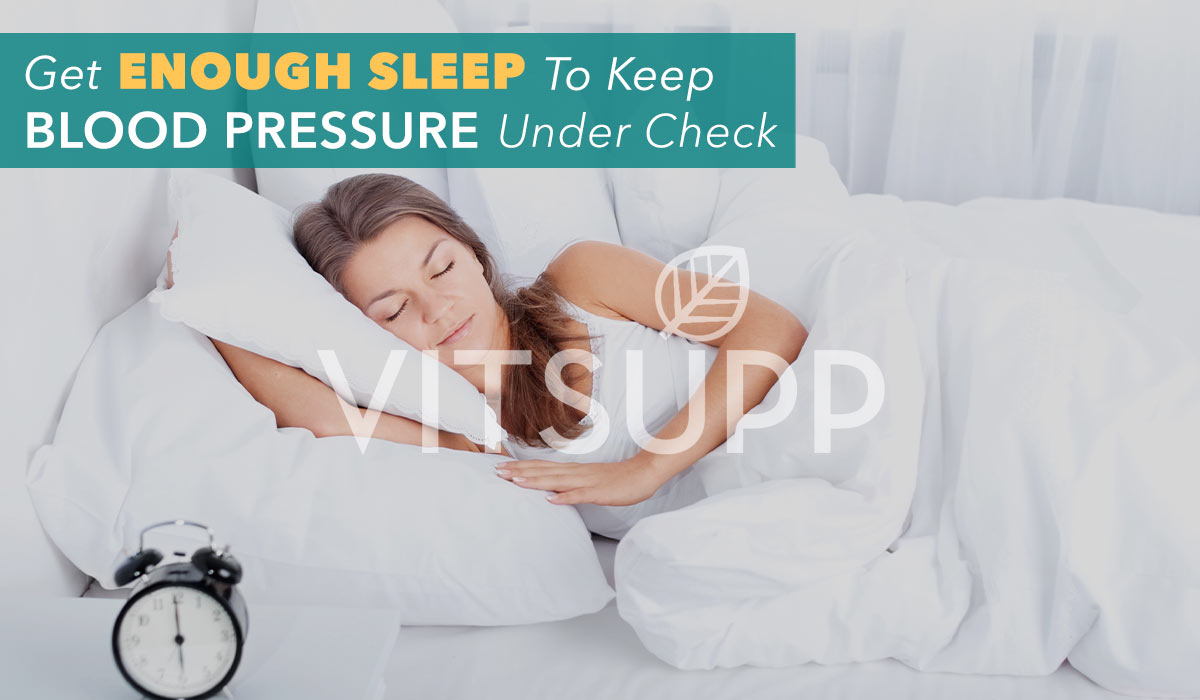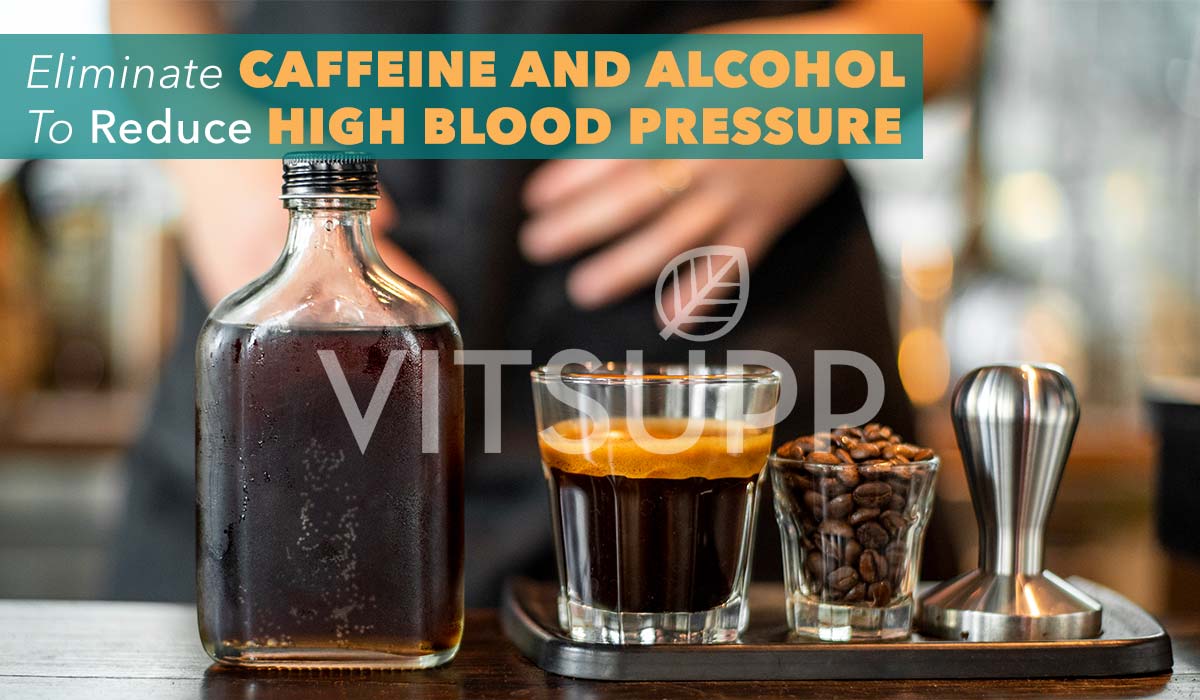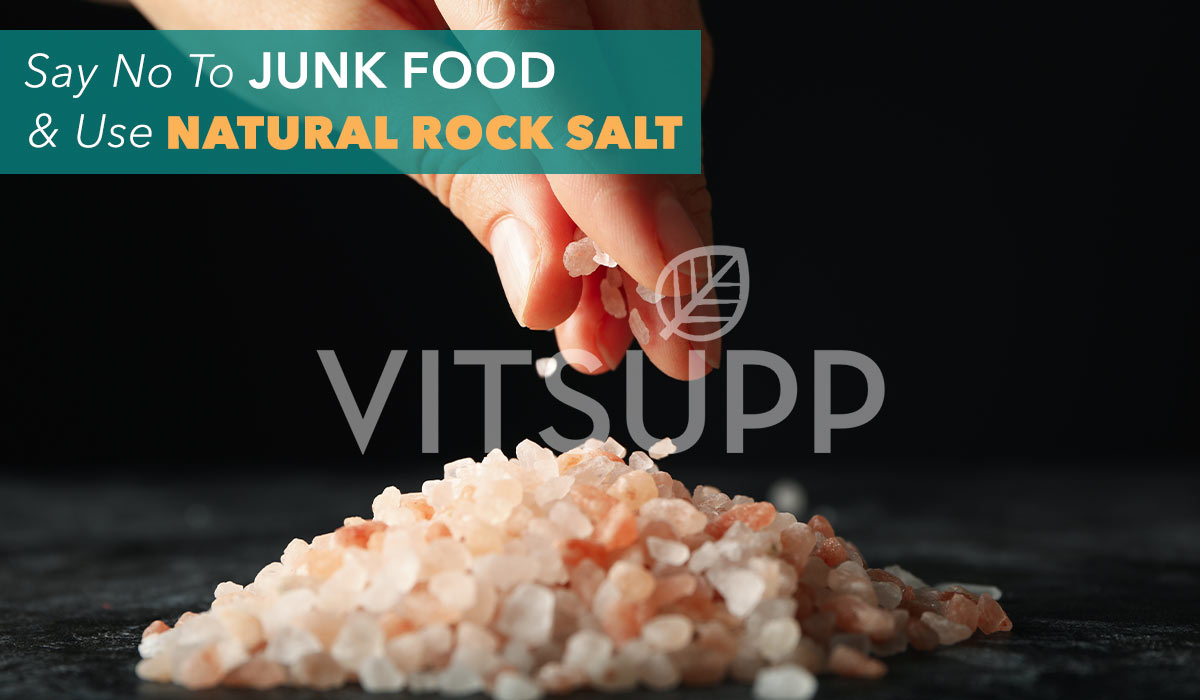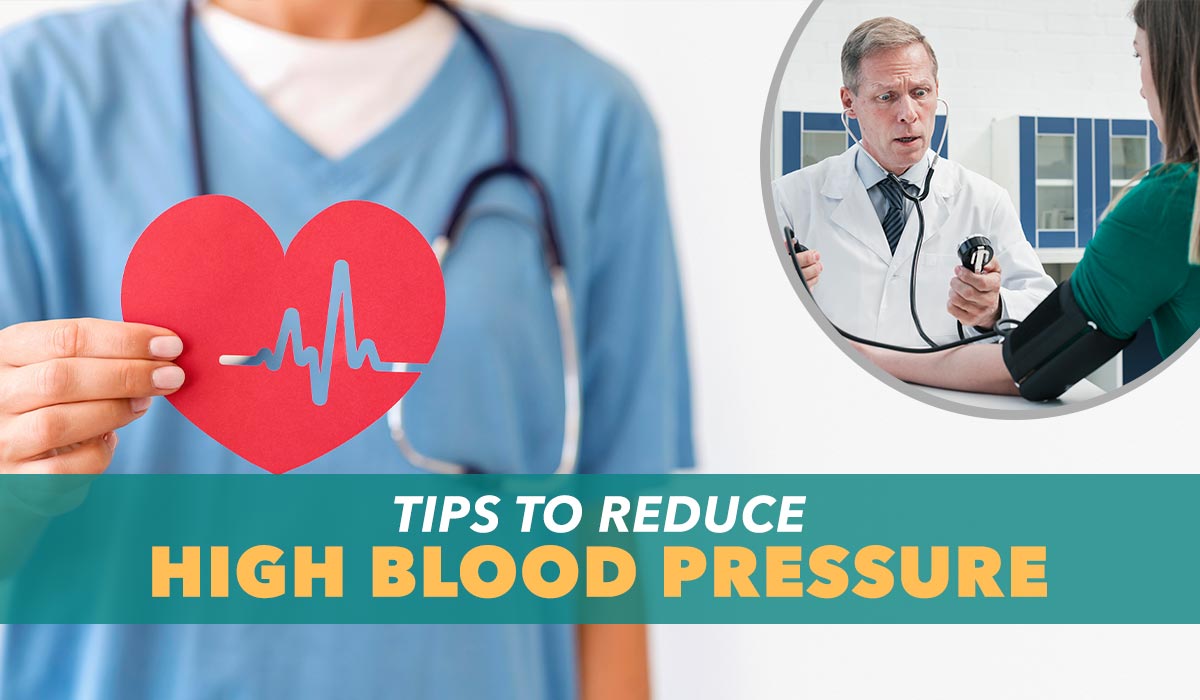Blood pressure reflects how forcefully your heart has to work to pump blood and relax between contractions. Healthy blood pressure keeps our organs and systems oxygenated, nourished, and running in peak condition through the blood supply. Unfortunately, blood pressure problems trouble nearly one in three adults globally. Maintaining healthy blood pressure levels is critical for optimum health. So here are some tips to reduce high blood pressure.
Blood pressure is traditionally expressed in millimeters of mercury. The first number, the systolic value, represents the effort the left ventricle requires to contract and push blood through the circulatory system. The second number, the diastolic pressure, is the force needed for your heart to relax. Physicians define high blood pressure as levels equal to or above 140 systolic and 90 diastolic (140/90 or greater). This can put you at significantly greater risk for several heart and kidney health conditions.
For many conventional physicians, optimal blood pressure is anything less than 140 systolic and 90 diastolic. However, that is not true. Optimal blood pressure needs to be 120 systolic over 80 diastolic or lower (120/80 or lower). This means that those levels that fall between 120 and 139 systolic over 80-89 diastolic are in a gray area that many more alternative-minded physicians are increasingly concerned about.
If your family has a history of High Blood Pressure or Hypertension or if you are concerned about having it, here are ten tips to reduce high blood pressure. Most of these are natural ways to reduce high blood pressure.
The Top 10 tips to reduce high blood pressure
1. Monitor blood pressure daily to reduce blood pressure
If you have elevated blood pressure, checking your blood sugar levels might be valuable. Research has repeatedly shown a strong association between increased sugar consumption and elevated blood pressure—especially high fructose corn syrup. High fructose corn syrup is made from corn starch. It requires immense processing during manufacturing, involving a lot of toxic chemicals that are loaded with mercury. These heavy metals, over time, accumulate and cause havoc with your body and mind.
These chemicals then get added to all your processed food. Also, unlike glucose, if fructose is not metabolized immediately, it is converted to fat. It is also a cause of fatty liver. Thirty minutes after consumption, regular sugar can lower your immunity for up to 5 hours. High fructose corn syrup is estimated to lower immunity for much longer.
Sugar makes you age. Experts state insulin sensitivity is the most important marker for an increased and improved lifespan. So the higher your blood sugar, the lower your length and quality of life.
The following foods routinely contain high fructose corn syrup:
- Most carbonated beverages and other sweetened drinks
- Baked goods
- Candies
- Canned fruits
- Jams and jellies
- Crackers
- Salad dressings, ketchup
- Dairy products
- Anything with a similar label as – “Added natural and artificial flavor.”
- Anything with a similar label as – “Added seasonings.”
You can normalize your blood sugar levels by avoiding all kinds of sugar, all food with added high fructose corn syrup (processed food), and grains. If you cannot avoid all grains, reduce them to a small serving with good fats such as organic unsalted butter, ghee, or cold-pressed extra virgin olive oil.
2. Regular Exercise

Exercise is no doubt the most common tip to reduce high blood pressure. Regular exercise is a critical component of a healthy lifestyle and can significantly lower blood pressure in those with hypertension. Such exercise reduces levels of high blood pressure.
Aerobic exercises such as walking, jogging, swimming, cycling, and dancing are particularly effective in reducing blood pressure. The American Heart Association recommends at least 150 minutes of moderate-intensity aerobic exercise or 75 minutes of vigorous-intensity aerobic exercise per week for adults. If you are wondering how to reduce high blood pressure, this can solve your problem.
In addition to aerobic exercise, resistance training is a suitable exercise to reduce high blood pressure. This type of exercise involves working against resistance to build strength and muscle mass and can be done using weights, resistance bands, or bodyweight exercises.
It’s important to note that consistency is critical in exercise and in helping reduce high blood pressure. It’s better to exercise regularly at a moderate intensity rather than sporadically at a high intensity. Gradually increasing the duration and intensity of your workouts over time can also help you see more significant improvements in blood pressure.
3. Optimize your Vitamin D levels.
Lack of vitamin D is a causative factor for Syndrome X, insulin resistance, obesity, elevated cholesterol, triglycerides, and high blood pressure.
Stephen G. Rostand, MD, The University of Alabama, in his article “Ultraviolet Light May Contribute to Geographic and Racial Blood Pressure Differences,” states that:
• the farther we are from the equator, the more our blood pressure.
• blood pressure is high in winter than in summer when there is a lack of sunlight.
In both cases, the lack of vitamin D causes an increase in the parathyroid hormones, which in turn causes an increase in blood pressure.
4. Get Enough Sleep to keep blood pressure under check

Chronically sleep-deprived individuals are at increased risk of chronic diseases such as diabetes, obesity, heart disease, and stroke. Because of the increased risk of obesity, there is an increased risk of heart disease. This is one of the essential tips to reduce high blood pressure.
Sleeping allows the body to heal and repair itself. Harvard Medical School says, “Studies have found that a single night of inadequate sleep in people with hypertension can cause elevated blood pressure throughout the following day.” This effect may explain the correlation between poor sleep and cardiovascular disease, and stroke. For example, one study found that sleeping too little (less than six hours) or too much (more than nine hours) increased the risk of coronary heart disease in women.”
5. Optimize your gut flora.
A team of researchers from Johns Hopkins University and Yale University has suggested that gut bacteria are part of a complex system that maintains the body’s blood pressure. They have discovered a specialized odor-sensing receptor, usually present in the nose, that can also be found in blood vessels throughout the body. In the gut, this receptor reacts to small molecules generated by bacteria by raising blood pressure. This is another one of the best tips for reducing high blood pressure.
Another study from The Griffith Health Institute found that consuming high amounts of probiotics in yogurt reduced blood pressure. The probiotic consumption, on average, lowered the systolic blood pressure (the higher number) by 3.56 mm Hg and diastolic blood pressure (the lower number) by 2.38 mm Hg.
Furthermore, the study showed that any supplementation of less than 100 billion colony-forming units per day did not give benefits. Thus more than 100 billion colony-forming units of probiotics a day were necessary to trigger the cardiovascular benefits. It was only seen in those who regularly consumed probiotics for at least eight weeks.
6. Eliminate caffeine and alcohol to reduce high blood pressure

Numerous studies have proven that caffeinated drinks like coffee or alcohol can increase your blood pressure if you suffer from it. Caffeine is a stimulant that can cause a temporary increase in blood pressure, especially if you consume it in large amounts. This effect can vary from person to person, and some individuals may be more sensitive to caffeine than others. For those with high blood pressure, it is advisable to eliminate or reduce caffeine consumption.
Drinking too much alcohol can raise blood pressure and increase the risk of other health problems. The American Heart Association recommends that men limit their alcohol consumption to no more than two drinks per day, and women should limit their intake to one drink per day.
One cup of coffee can contain as much as 100-200 mg of caffeine, which can cause a significant increase in blood pressure for several hours. Caffeine can also be found in beverages such as tea, energy drinks, and soda. Limiting or eliminating caffeine intake is among the best tips to reduce high blood pressure.
Caffeine or alcohol can interact with some medications used to treat high blood pressure, such as beta-blockers. If you’re taking medication for high blood pressure, talk to your healthcare provider before consuming caffeine-containing drinks. They may recommend that you limit your intake or avoid it altogether.
7. Have Vitamins C and E-rich diets.
Many studies have now indicated vitamin C, and vitamin E allows for a reduction in blood pressure. They are best obtained from the diet, but if they cannot be accepted alone, remember to supplement Vitamin E only in its natural form, not synthetic. Natural vitamin E starts with “d-” (for example, d-alpha-tocopherol), while synthetic vitamin E starts with “dl-” on all labels. Also, only buffered vitamin C must be used as a supplement. Having a nutritious diet can help reduce high blood pressure quickly.
So, what natural foods reduce high blood pressure? It’s important to note that getting vitamins C and E from food sources is always the best option. Vitamin C-rich foods like citrus fruits, berries, kiwi, broccoli, and red and green peppers are some of the foods to reduce high blood pressure. Good sources of vitamin E include nuts, seeds, leafy greens, and vegetable oils.
8. Try Anulom Vilom Pranayam to reduce high blood pressure
Anulom Vilom Pranayam is an alternate nostril breathing exercise. It works by increasing nitric oxide in your blood, opening constricted blood vessels and lowering blood pressure. If alternate nostril breathing is uncomfortable, you can only do the same from one nostril. This can be one of the best ways to reduce high blood pressure.
Those suffering from heart problems or blood pressure (high or low) should avoid retention of breath. They must do the Anulom Vilom pranayama without holding their breath. It is best done on an empty stomach in the morning.
9. Say No to Junk Food & Use Natural Rock Salt

Yes, reducing salt intake can help lower blood pressure. It is one of the very common ways to reduce high blood pressure. The American Heart Association recommends consuming less than 2,300 milligrams (mg) of sodium per day, but ideally, aim for no more than 1,500 mg per day for most adults. Eliminate all processed food, which is almost always very high in sodium and low in nutritional value. In addition, avoid foods high in sugar and trans fats. Focus on eating whole grains, fruits, vegetables, nuts, seeds, legumes, and lean proteins like poultry and seafood. These are the foods that reduce high blood pressure. Research shows that protein can have a positive impact on blood pressure. Use herbs and spices to add flavor to meals instead of salt. Some examples include garlic, ginger, basil, oregano, thyme, and cumin.
10. Stress Reduction
Chronic stress can cause an increase in hormones that elevate blood pressure, such as adrenaline and cortisol. Finding healthy ways to manage stress can help lower blood pressure and improve overall health. Fortunately, using stress-reducing techniques is highly effective in reducing blood pressure levels. Relaxation techniques such as meditation, deep breathing, and progressive muscle relaxation can help reduce stress and lower blood pressure.
Mindfulness is the practice of being present at the moment and non-judgmentally observing thoughts and feelings. Mindfulness techniques, such as mindful breathing or body scan meditations, can help reduce stress and lower blood pressure. If stress is impacting daily life or causing severe anxiety or depression, consider seeking professional help from a mental health professional.
Conclusion
High blood pressure is a serious health concern that requires attention and proactive management. By making simple yet effective lifestyle changes, individuals can take control of their blood pressure and reduce their risk of developing chronic diseases.
Maintaining a healthy diet, exercising regularly, managing stress, optimizing vitamin D levels, and limiting alcohol consumption are all critical steps to reducing high blood pressure. Additionally, monitoring blood pressure levels regularly and working closely with a healthcare professional is essential to developing a personalized plan for managing high blood pressure.
It’s essential to recognize that high blood pressure is a manageable condition, and with proper care, individuals can achieve improved health and longevity. However, it’s necessary to consult a doctor before making significant lifestyle changes, especially if you have a history of high blood pressure or other health concerns.
By managing blood pressure, individuals can improve their overall health, reduce the risk of chronic diseases, and enjoy a better quality of life. Let us know what steps you have taken to manage your blood pressure.
FAQs on tips to reduce high blood pressure
Because high blood pressure frequently has no apparent symptoms, it is commonly called the “silent killer.” A few symptoms of high blood pressure include headaches, shortness of breath, dizziness, chest pain, and vision changes. Other illnesses can bring on these signs, which are not unique to high blood pressure. Regular blood pressure checks are crucial, especially if you have risk factors for high blood pressure, such as being overweight, having a family history of the condition, or living a sedentary lifestyle.
If your blood pressure is consistently high, it is essential to take action to lower it. Here are some steps you can take:
Consult your doctor: If you have high blood pressure, working with your doctor to develop a treatment plan is essential. Your doctor may prescribe medication to help lower your blood pressure.
Make lifestyle changes: You can help reduce your blood pressure by making various changes, including eating a healthy diet, reducing salt intake, maintaining a healthy weight, exercising regularly, limiting alcohol consumption, and quitting smoking.
Monitor your blood pressure at home: You can monitor your blood pressure at home using a home blood pressure monitor. This can help you keep track of your blood pressure and ensure it stays within a healthy range.
Manage stress: Stress can contribute to high blood pressure, so it’s essential to manage stress in healthy ways, such as through exercise, meditation, or relaxation techniques.
Take medication as prescribed: If your doctor has prescribed medication to lower your blood pressure, it’s essential to take it as prescribed and follow your doctor’s instructions.
High blood pressure, also known as hypertension, can be caused by various factors. In many cases, there is no identifiable cause referred to as essential or primary hypertension.
However, several risk factors can contribute to the development of high blood pressure, including:
Lifestyle factors include a diet high in salt and unhealthy fats, lack of physical activity, and obesity.
Genetics and family history of high blood pressure.
Age, as blood pressure, tends to increase as we get older.
Chronic conditions such as diabetes, kidney disease, and sleep apnea.
Stress and anxiety can temporarily raise blood pressure.
It’s important to note that often, high blood pressure develops gradually over time and may not show any symptoms until it becomes severe. Therefore, regular blood pressure monitoring and lifestyle modifications can help prevent and manage high blood pressure.
Anxiety can cause temporary high blood pressure, especially during intense or panic attacks. This is because when you experience anxiety, your body releases stress hormones like adrenaline and cortisol, increasing your heart rate and constricting your blood vessels. As a result, your blood pressure can temporarily rise.
However, for most people with anxiety, this increase in blood pressure is usually not sustained and returns to normal once the anxiety episode has passed. In other words, fear alone is not likely to cause chronic high blood pressure, but it can certainly contribute to temporary spikes in blood pressure. Stress management is one of the vital tips to reduce high blood pressure.
It’s important to note that genetics, lifestyle habits, and underlying medical conditions typically cause chronic high blood pressure.
High blood pressure can be reduced naturally at home by making simple lifestyle changes. It can increase the risk of several chronic diseases, such as heart disease, stroke, and kidney disease. These include maintaining a healthy weight, following a balanced diet low in sodium and high in potassium-rich foods, getting regular exercise, reducing stress levels, and limiting alcohol consumption. Additionally, quitting smoking, getting enough sleep, and monitoring blood pressure regularly can help manage hypertension.
However, if you are wondering how to reduce high blood pressure immediately at home then relaxation techniques like deep breathing, meditation, or yoga can help to reduce stress and lower blood pressure. Taking slow, deep breaths for a few minutes can help to calm your body and lower your blood pressure. Also, aim to drink at least eight to ten glasses of water per day.
One of the most important dietary changes is reducing sodium intake. Sodium is known to raise blood pressure, so it’s important to avoid adding salt to your food and limit your consumption of processed and packaged foods, which are typically high in sodium. Increasing potassium intake can also help to counteract the effects of sodium and lower blood pressure levels. Foods that are rich in potassium include bananas, avocados, spinach, sweet potatoes, and beans. Make sure to eat plenty of fruits, vegetables, whole grains, and lean protein sources. It’s also important to limit your caffeine intake since caffeine can cause blood pressure to rise. Aim to consume no more than 200 milligrams of caffeine per day. Staying hydrated by drinking plenty of water can also help to keep your blood pressure levels in check. Aim to drink at least eight to ten glasses of water per day.


